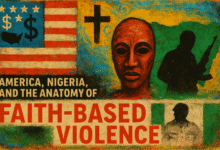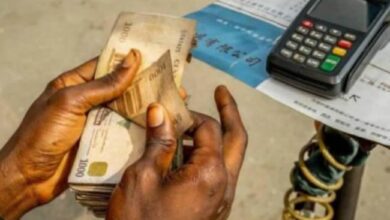Appraising barriers limiting women’s participation in nation building
 By Angela Atabo
By Angela Atabo
Data from statista.com reveals that there are approximately 105.57 million females and 107.83 million males in Nigeria at 2021.
The World Bank says while women constitute approximately 49 percent of the population, females account for approximately 51 percent of the population.
In spite of the close gap in gender ration in the population attaining gender parity in various aspects of national life has remained a mirage for women and girls.
Gender advocates say discrimination, marginalisation, patriarchy, cultural and religious norms among others contribute to the slow pace of attaining gender equality in Nigeria and in many other developing countries.
The international community has taken several initiatives such as Sustainable Development Goals (SDGs) to engender gender parity
The SDG no five is specific about gender parity is its aim is to promote gender equality, ending all forms of discrimination against all forms of discrimination against women and children.
Goal number five also promotes ways to end violence and exploitation of women and girls; eliminate harmful practices such as early child and forced marriage, and female genital mutilation.
It also seeks to increase the value of unpaid care and promote shared domestic responsibilities; ensuring full participation of women in leadership and decision-making; and ensuring access to universal reproductive rights and health.
The barriers women face in contributing their quota to national development is felt in virtually every sector, including mining, one of the mainstays of the nation’s economy.
Some women interest groups and gender advocates are pushing back against the inequalities.
An advocate, Janet Adeyemi, said there was need to address limiting factors to women’s participation in mining in Nigeria for maximum productivity.
Adeyemi, the Founder and National President of Women in Mining Nigeria (WIMIN), spoke at a 2-day High Level National Policy Dialogue themed: ”Mainstreaming Gender in the Solid Mineral Sector in Nigeria’’,
Adeyemi listed lack of funding, lack of access to titles; and lands as two of the factors that have ensured a systemic indoctrination against women in the mining sector.
“Women hardly have big mining companies, only a few had, yet they bear the brunt of mining activities, whether they are directly involved or indirectly”, she said.
She called for the need for the government to empower women with loans and equipment to make them active participants in the mining sector.
She said young women should also be mentored through such programmes as Science Technology, Engineering and Math (STEM).
Checks by News Agency of Nigeria (NAN) revealed that the 8th Assembly was made up of just seven females Senators and 22 House of Representatives members out of the 109 Senators seats and 360 Rep seats.
This figure represents 6.4 percent and 6.1 percent of the two chambers of the legislature..
During the just-disbanded 9th Assembly and had seven Senators while the figure of female reps decline to 11 seats.
In the newly-inaugurated Assembly the story is not different as only a combined 17 female federal lawmakers where elected.
Many women who signified interest in contesting for positions in the legislatures also stepped down as men claimed the office of Senate President, Deputy Senate President, Speaker House of Reps and Deputy Speaker, House of Reps.
The UN Women Representative to Nigeria and the Economic Community of West African States (ECOWAS), Ms. Beatrice Eyong, said this calls for concern.
She spoke at a one-day meeting of, `He` for `She` organised by the Centre for Democratic Development (CDD), ‘He’ for `She’ is a term for men who are supporting gender equality.
“Women participation in politics in Nigeria is very unsatisfactory and unacceptable. If you look at the African sub-region, Nigeria is one of the lowest countries as far as representation on the parliament is concerned.
“As at 2022 Nigeria has just 4.1 per cent female presence in the federal parliament while in other countries like Rwanda it is 67 per cent, Senegal is about 57 per cent.
“These are all countries with a very high level representation of women in parliament, but for Nigeria, it is something that is very unacceptable”, she said.
The President of Women in Politics Forum (WiPF), Ebere Ifendu, told NAN that the low participation of women in leadership, elective positions and governance had persisted in spite of d advocacies by Civil Society Organisations (CSOs).
Ifendu said there was need to take deliberate steps to ensure gender equality, which according to her will benefit national development efforts.
She said the need for the participation and inclusion of women in political and public offices could not be overstated.
“The national average of women’s political participation in Nigeria remains a mere 6.7 percent both in elective and appointive positions, far below the global average of 22.5 per cent.”
“Africa’s regional average is 23.4 percent and the West African sub-regional average is 15 percent.
“Sadly, the situation continues to persist despite the strong advocacy for gender equality and inclusive development by social movements and organisations”, said Director, Women in Management, Business and Public Service (WIMBIZ), Hansatu Adegbite
Adegbite believes that one area that should attract the attention of women empowerment advocates and policymakers and implementers is the health sector.
The right and the rate of maternal mortality in Nigeria is becoming alarming as study reveals that Nigeria has about 512 maternal mortalities per 100,000 births.
“As you know, Nigeria has one of the highest maternal mortality ratios in the world of 576 maternal deaths per 100,000 live births.
“That’s unacceptable, especially when we know that 95 percent of those deaths are preventable”, protested the National President Medical Women Association of Nigeria (MWAN), Dr Adekemi Otolorin.
Unfortunately, experts say, most of the pregnancies are unplanned due and occur in household without access to family planning.
“Given the God-given role that women play in the continuation of the human race, our expectation is that they should receive special care of stakeholder and governments
“Sexual and reproductive health services for women should be free of charge or at best affordable. This is not the case in Nigeria. Sadly, up to 70 per cent of health care expenses in Nigeria are out-of-pocket expenses.
“Many women shun health facilities and go in search of prayers houses or look for cheap options by buying drugs from patent medicine vendors who cannot diagnose and often inappropriate medications”, she said.
Granted modern health care is expensive but the availability of health insurance is expected to cushion the effect on individual pockets.”
She urged the full implementation of the Basic Health Care provision Fund so that all women of reproductive age and children under the age of five years could receive free health services under the national health insurance scheme (NHIS).
The Primary Health Cares are supposed to take care of these challenges but unfortunately they cannot help matters as most of them in the FCT merely exist.
Another area of concern for gender advocates is sexual gender based violence
According to Derby Collins-Kalu a Senior Programme Officer in charge of Gender Based Violence (GBV), Institute of Human Virology, Nigeria (IHVN), 17 million Nigerian women have experienced intimate or non-intimate violence and the number is alarming.
Sadly, while women have gender-related challenges, they also share other health challenges in common such as diabetes, hypertension, tuberculosis and malaria.
Addressing these barriers will pave the way for society to benefit from the immense physical, intellectual, mental other energies that women can unleash.
News Agency of Nigeria (NAN)











